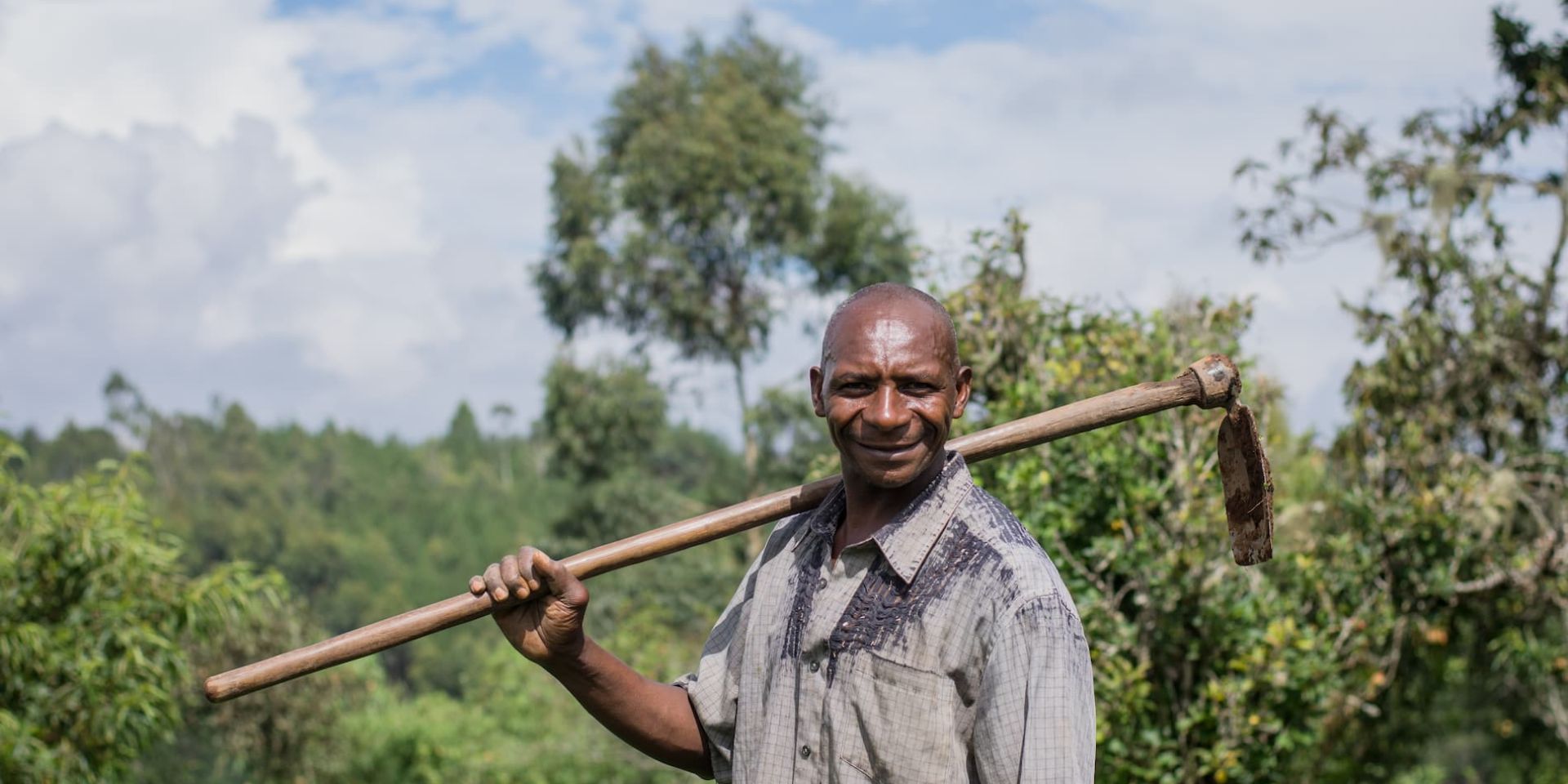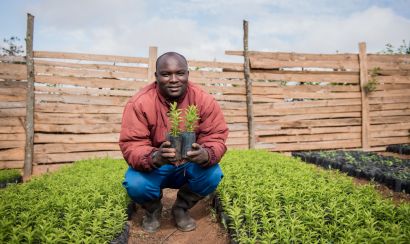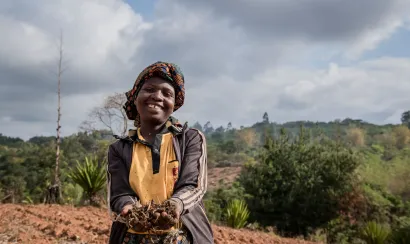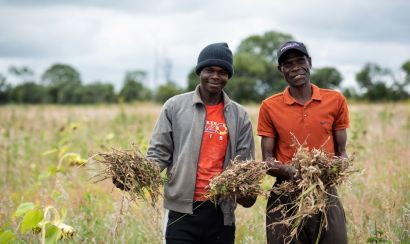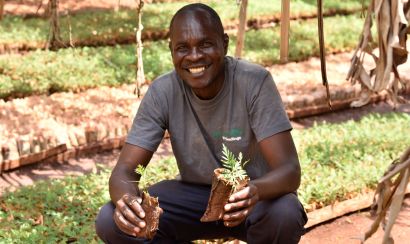Why investing in variety is crucial for farming success
With a drag of his hand hoe, Tanzanian smallholder Angelus Mwapinga reveals a dark soil teeming with potatoes. He pulls up the final tubers of his harvest with a smile because he has managed to produce 60 bags of potatoes - an increase of 10 bags compared to last year.
Angelus says this was possible because he was able to buy fertilizer – and was trained on how to apply only the necessary amount – with credit from One Acre Fund.
“I can get all my inputs even when I do not have much money at the beginning of the season,” says Angelus.
Difficulties with access to cash is a challenge faced by many smallholder farmers in Africa: many can’t access fertilizer and improved seed varieties – critical to boosting yields and income – because the initial investment is too costly. Credit from One Acre Fund breaks this cycle and helps farmers invest for their future and families.
More variety = greater resilience
In this case, Angelus invested in diversifying the crops on his land. By simply increasing the variety of crops he grows, Angelus reduces the risk of crop failure and makes his farm – and income – more resilient to climate shocks like extreme weather and disease. Now, if the rains aren’t right for maize, he has potatoes and fruit from his fruit trees as well.
With seven children, the benefits of this investment are tangible for Angelus.
Even after repaying the credit, he still had enough profit left to pay exam fees for his eldest son to become a certified mechanic and to send the rest of his children to school. As he sweats under the early morning sun, he says this is what drives him to keep improving his farming.
As fertilizer prices have soared due to the war in Ukraine, Angelus has learnt how to make it go a long way with training in microdosing from One Acre Fund. This taught Angelus to measure a small amount of fertilizer per individual plant, which can use up to five times less than spreading it on the field the way he used to. This practice will also help him avoid degrading his soil in the long term.
In addition to his food crops, this year Angelus has been inspired to increase the number of trees on his land and has bought tree saplings using credit through One Acre Fund.
The 50-year-old farmer describes himself as endlessly curious about farming despite having done it his whole life. Now he is carrying out his own field trials with tree saplings, excited to see how modern and traditional varieties compare with the help of One Acre Fund field officers.
“I hope what I was told is true – that these modern seedlings mature really quickly,” says Angelus. “I believe with improved seedlings I will spend less time maintaining the trees in the field.”
As the Tanzanian farmer finishes the potato harvest for another year, he shows off his nearby apple trees brimming with fruit. Now, he has three types of fruit trees: apple, pear, and avocado, as well as two crops; maize and potatoes.
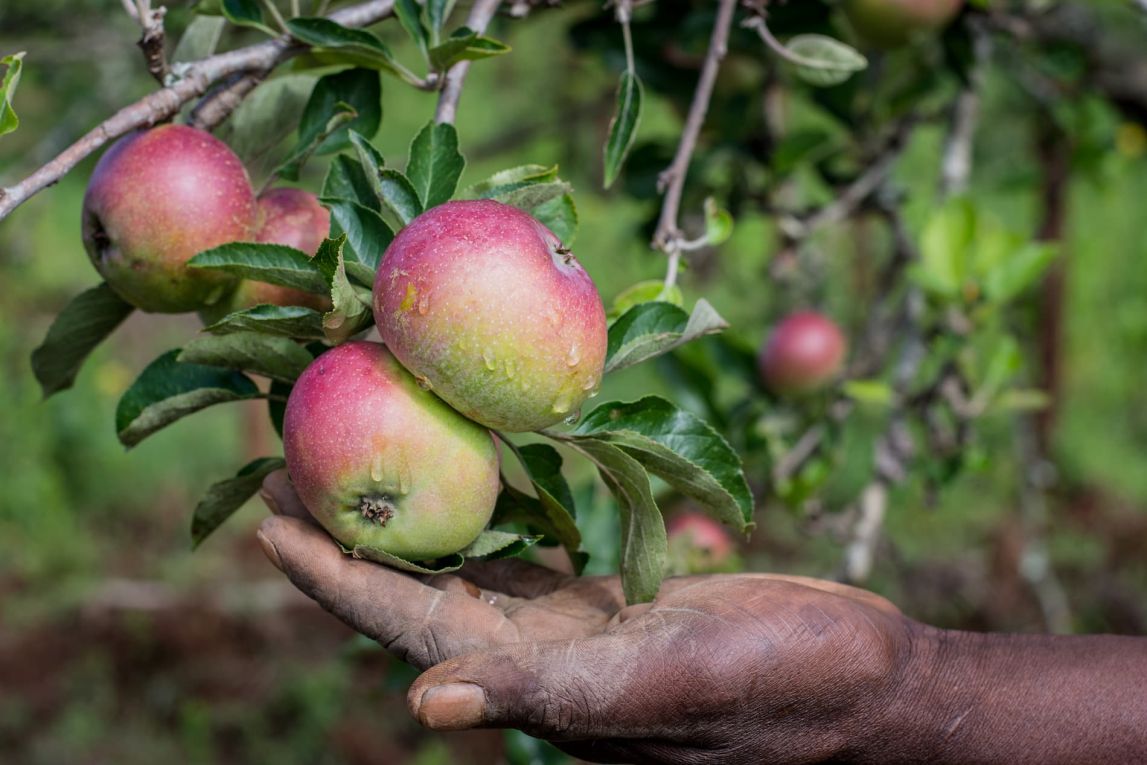
This mix of crops and trees is known as agroforestry and delivers a whole host of benefits, such as improved soil health and crop yields, habitats for pollinators, and the protection of crops from extreme weather - something that is ever more frequent due to climate breakdown.
Ambitious as ever for the sake of his family, he is calling on the organization to offer irrigation pumps on credit so he can take his farming to the next level.
